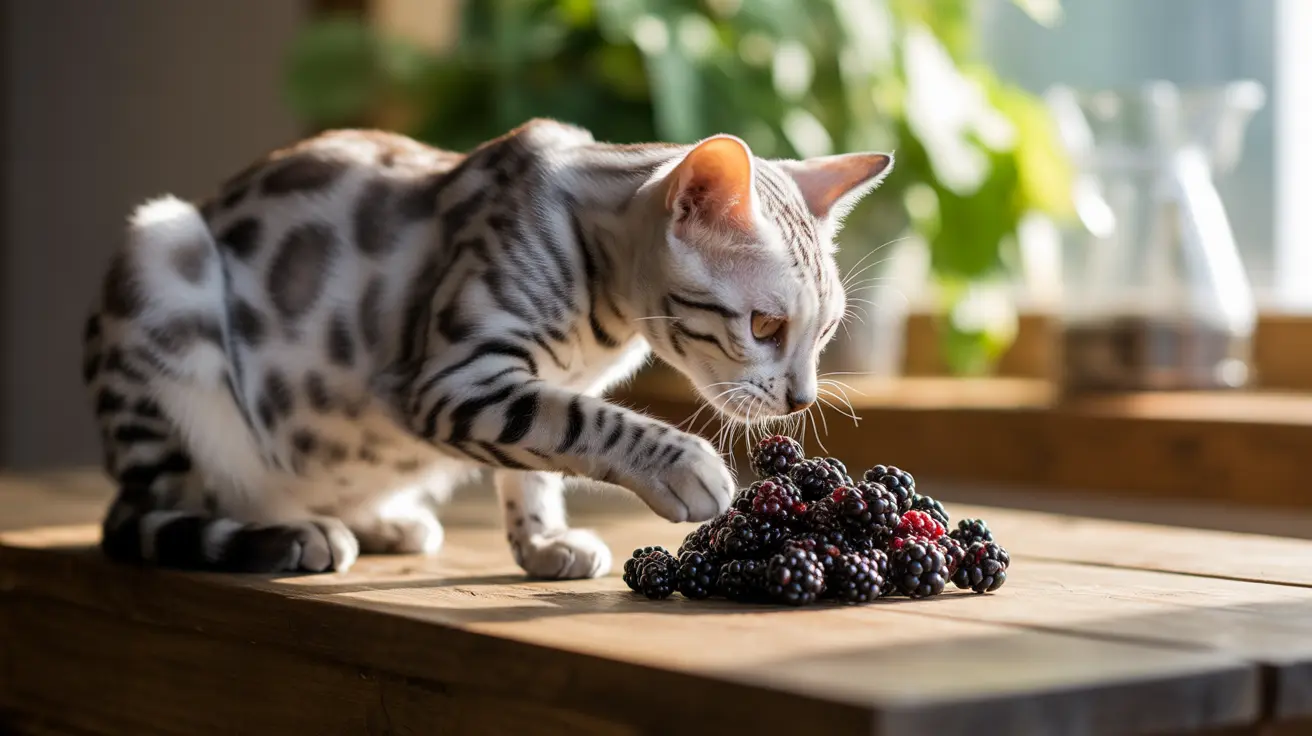Safety and Nutritional Benefits
Blackberries are completely safe for cats when offered properly. These berries contain beneficial compounds including antioxidants, particularly anthocyanins, which can help combat free radicals in your cat's body. They also provide modest amounts of vitamins C, K, and E, though cats typically synthesize their own vitamin C naturally.
The fiber content in blackberries may support digestive health when given in small quantities. However, it's crucial to remember that these nutritional benefits are minimal due to the small serving sizes appropriate for cats.
Proper Serving Guidelines
When offering blackberries to your cat, follow these essential guidelines:
- Wash berries thoroughly to remove pesticides and contaminants
- Cut berries into small, manageable pieces to prevent choking
- Limit portions to 2-3 small pieces per serving
- Only offer fresh, ripe blackberries
- Avoid processed or sweetened blackberry products
Monitor your cat after introducing blackberries for the first time, watching for any signs of digestive upset or adverse reactions.
Potential Risks and Considerations
While blackberries are safe, there are several important considerations:
- Cats can't properly digest large amounts of fruit
- Excessive consumption may cause digestive issues
- Natural sugar content should be considered, especially for diabetic cats
- Some cats may show no interest due to their lack of sweet taste receptors
- Berries should never replace regular cat food in the diet
When to Avoid Blackberries
Some cats should not be given blackberries, including:
- Cats with diabetes or blood sugar issues
- Cats with sensitive digestive systems
- Cats with known fruit allergies
- Cats on specific veterinary diets
Frequently Asked Questions
Are blackberries safe for cats to eat, and can they be toxic?
Blackberries are completely safe and non-toxic for cats. Unlike grapes or raisins, which are known to be harmful to cats, blackberries pose no toxicity risk when given in appropriate amounts.
What nutritional benefits do blackberries provide to cats when given as a treat?
Blackberries offer antioxidants, fiber, and vitamins (C, K, and E). However, these benefits are minimal due to the small quantities cats should consume, and they should not be relied upon as a significant source of nutrition.
How should I prepare and serve blackberries to my cat to avoid choking or digestive issues?
Thoroughly wash fresh blackberries and cut them into small, bite-sized pieces. Offer no more than 2-3 small pieces at a time, and only serve plain, fresh berries – never processed or sweetened varieties.
Can feeding blackberries to cats cause any health problems like allergies or upset stomach?
While allergies are rare, overconsumption can lead to digestive issues including vomiting, diarrhea, or gas. Always introduce new foods gradually and monitor your cat for any adverse reactions.
Are there other berries besides blackberries that are safe and healthy for cats to eat?
Yes, other safe berries include blueberries, raspberries, and strawberries, all in moderation. However, avoid grapes and raisins as these are toxic to cats.
Conclusion
While cats can safely eat blackberries, they should only be offered as an occasional treat, not a dietary staple. Always prioritize a balanced, meat-based diet for your cat's primary nutrition, and consult with your veterinarian before introducing any new foods into your pet's diet.






